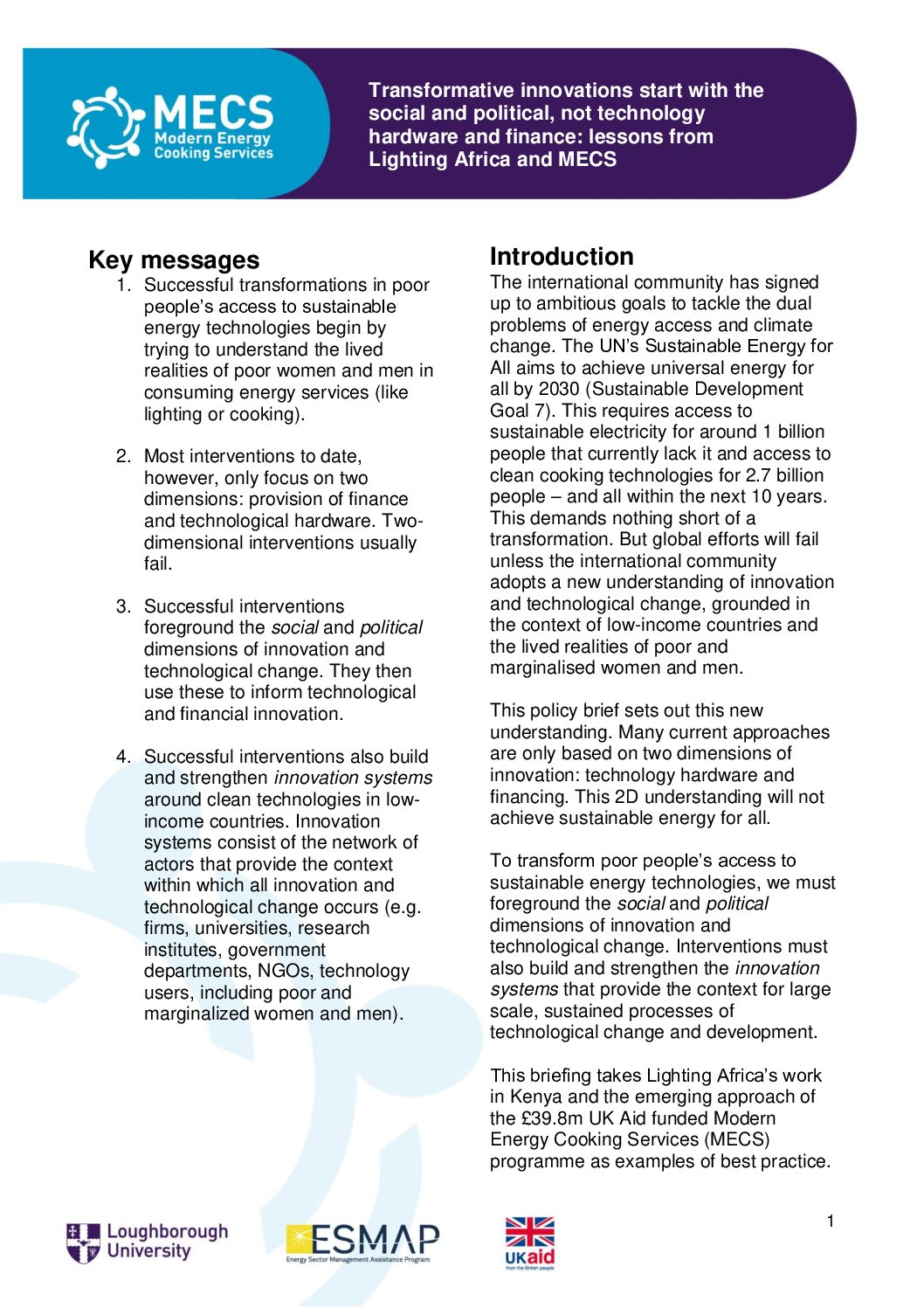Transformative innovations start with the social and political, not technology hardware and finance: lessons from Lighting Africa and MECS
MECS Briefing paper, September 2019

The international community has signed up to ambitious goals to tackle the dual problems of energy access and climate change. The UN’s Sustainable Energy for All aims to achieve universal energy for all by 2030 (Sustainable Development Goal 7). This requires access to sustainable electricity for around 1 billion people that currently lack it and access to clean cooking technologies for 2.7 billion people – and all within the next 10 years. This demands nothing short of a transformation. But global efforts will fail unless the international community adopts a new understanding of innovation and technological change, grounded in the context of low-income countries and the lived realities of poor and marginalised women and men.
This policy brief sets out this new understanding. Many current approaches are only based on two dimensions of innovation: technology hardware and financing. This 2D understanding will not achieve sustainable energy for all.
To transform poor people’s access to sustainable energy technologies, we must foreground the social and political dimensions of innovation and technological change. Interventions must also build and strengthen the innovation systems that provide the context for large scale, sustained processes of technological change and development.
This briefing takes Lighting Africa’s work in Kenya and the emerging approach of the £39.8m UK Aid funded Modern Energy Cooking Services (MECS) programme as examples of best practice.
Related working paper: Transforming Access to Clean Technology: Learning From Lighting Africa